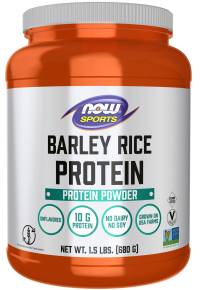Leandra Becerra Lumbreras, matriarch to 73 great-grandchildren and 55 great-great grandchildren, attributed her longevity to eating chocolate, sleeping for days at a time, and never getting married. According to her family, she kept her mind sharp by sewing and weaving. Lumbreras' family claimed she lived to age 127.
In Japan, the late Misao Okawa, the daughter of a kimono maker, credited her good fortune to eating fish and sleeping eight hours a night. At 116 years old, Okawa was officially recognized as the world’s oldest person by the Guinness Book of World Records because Lumbreras cannot provide a birth certificate. Okawa lived to age 117.
With Alzheimer’s disease and dementia being a common fear of old age, it’s encouraging to see people stay mentally sharp with their 100th birthday in the rearview mirror. Pushing aside their blessed genetics, both women’s advice echoes research on the best practices for boosting brain health. Indeed, sleeping as well as eating chocolate and fish are important factors!
Move It or Lose It
Exercise is a key contributor to brain health. A University of British Columbia study found that aerobic exercise increased the size of the hippocampus, the part of the brain responsible for learning and memory. This study built on earlier research that demonstrated strength training also improved memory.
Another study compared the academic performance of elementary school students who exercised versus those who didn’t. Those randomly assigned to the exercise group recorded the highest improvements on cognitive tests.
A long-term 21-year study of senior citizens published in the New England Journal of Medicine also found that regular freestyle dancing (as opposed to choreographed dance sequences) reduced the risk of dementia by 76 percent and that doing crossword puzzles at least four days a week reduced that same risk by 47 percent.
The American Academy of Neurology recommended in 2022 that people get at least 2.5 hours of moderate exercise or 75 minutes of vigorous exercise each week. It also advised to not exceed four hours of television watching per day. Seven to nine hours of sleep each night was also key.
Feed Your Brain
Here are some other food and lifestyle choices that may considerably impact brain health.
-
Cocoa Flavanols
In a Harvard Medical School study, drinking two cups of antioxidant-rich hot cocoa a day resulted in improved blood flow to the brain and better memory recall on standardized tests.
-
Aged Garlic Extract
A Tufts University School of Medicine study found that aged garlic extract may reduce the risk of oxidant-mediated brain cell damage associated with Alzheimer’s disease.
-
Medicinal Mushrooms
According to the Journal of Traditional and Complementary Medicine, the Hericium erinaceus mushroom, also called the lion’s mane mushroom, contains compounds that may stimulate nerve and brain cell growth after an accident or as we age.
-
Curcumin
This antioxidant, anti-inflammatory compound of the Indian spice turmeric may reduce the risk of Alzheimer’s disease.
-
Omega-3 Fatty Acids
Fish oils rich in omega-3 polyunsaturated fatty acids were shown to give a significant boost in cognitive function and help improve brain structure in older adults in a 2014 study.
-
Phosphatidylserine
Phosphatidylserine (fos-fuh-tie-dul-SER-een, PS) is an essential chemical compound that maintains cellular functions—particularly in the brain. The body can make it and also obtains it from foods. Available as a supplement (typically made from cabbage or soy), PS has been shown to significantly improve memory function. However, improvements may only last a few months.
Throw a Party for Your Brain
There is growing evidence that having a strong social support circle can help keep the mind sharp. In research presented to the 2013 Society for Neuroscience conference, one study asserted that “people who have many friends have certain brain regions that are bigger and better connected than those with fewer friends.”
So ultimately, it’s not just what you eat that matters – but also who you eat it with.





